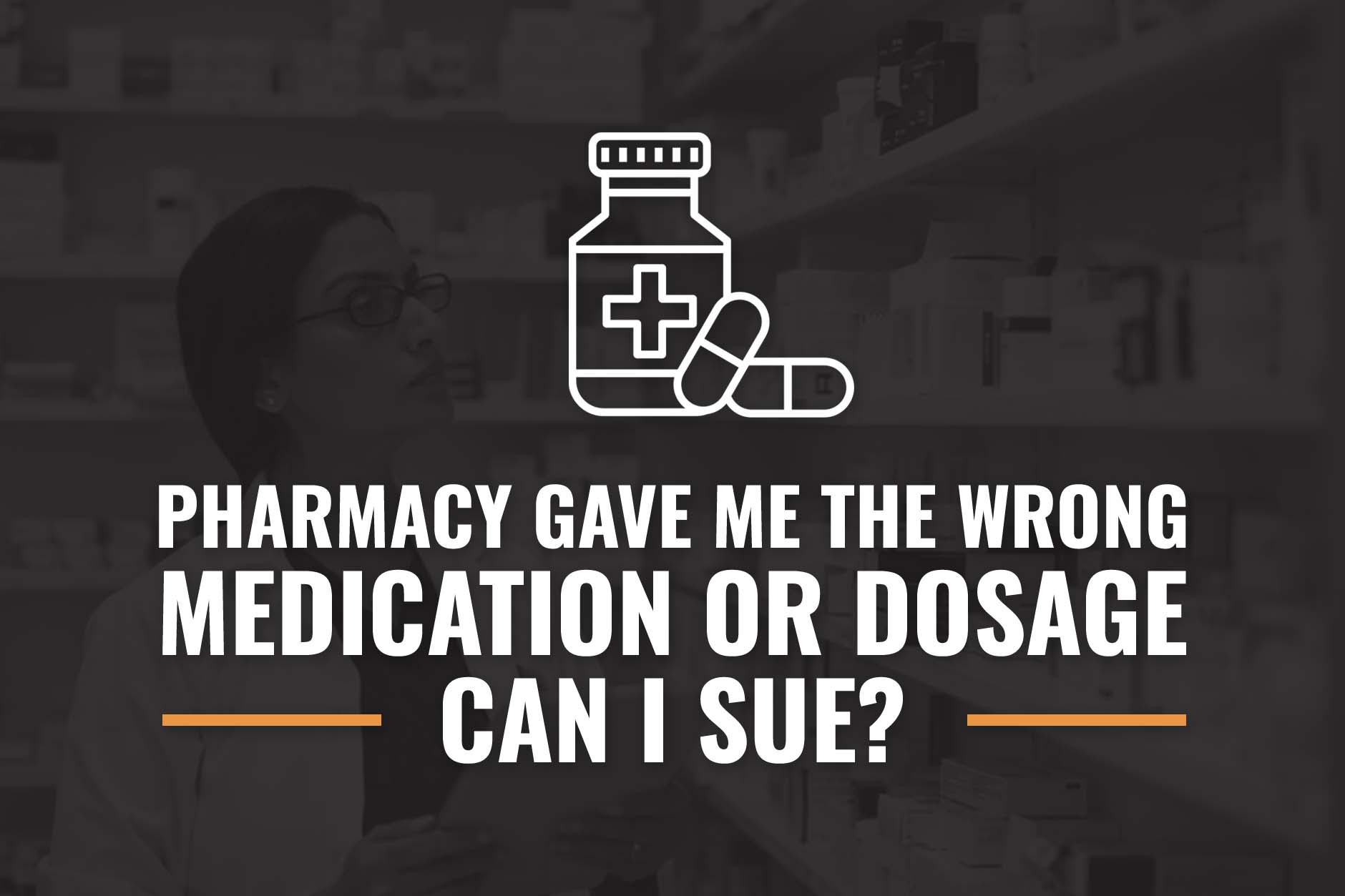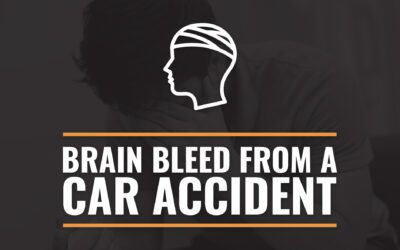
Table of Contents
Imagine picking up a regular prescription from your local pharmacy. You trust it’s correct and start taking the medication as directed. Within hours, you notice unusual side effects. You double-check the label and realize the pharmacy gave you the wrong medication. Your symptoms are worsening, so your spouse drives you to the closest emergency room, where your medical team confirms that your pharmacist made a dangerous mistake.
This isn’t just a rare, unfortunate incident. According to the AMCP, these types of medication errors affect approximately 1.5 million people in the U.S. every year. Mistakes can range from receiving the wrong medication to getting an incorrect dosage. In some cases, it can lead to severe health complications and even death.
Many people are unaware that they can take legal action when harmed by a pharmacy’s mistake. At LegalGenius, PLLC, we understand how the wrong medication or dosage can cause life-threatening injuries, and will demand fair compensation for you and your family. In this blog, we review common pharmacy errors, your rights in these situations, and how a medical malpractice lawyer can help.
Understanding Pharmacy Errors
Pharmacy errors can have serious consequences. According to one recent report, the medical cost of treating related injuries comes to at least $3.5 billion a year. These mistakes can happen for many reasons, the most common of which are outlined below.
- Wrong Medication: One of the most common pharmacy errors is giving out the wrong medication. This can happen if the pharmacist misreads the prescription or picks the wrong bottle from the shelf. This mistake can lead to serious health issues, especially if the wrong medication has adverse effects or interacts poorly with other medications the patient is taking.
- Incorrect Dosage: An incorrect dosage occurs when a patient receives too much or too little of the prescribed medication. Incorrect dosages can result in dangerous side effects that require expensive emergency room care.
- Labeling Errors: Labeling errors, such as the wrong drug name or dosage instructions on the bottle, can confuse patients and cause them to misuse their medication. Accurate labeling is essential for ensuring that patients take their medication correctly, and failure to do so can cause medically significant injuries.
- Mixing Up Patient Information: Mixing up patient information can result in one person getting another’s prescription, leading to potentially dangerous outcomes. This error can be particularly harmful if the medications involved have strong side effects or interactions.
Common Causes of Pharmacy Errors
Human error is a major cause of pharmacy mistakes. Pharmacists and pharmacy technicians can make errors just like anyone else. These mistakes might occur due to misreading a prescription or accidentally selecting the wrong medication. When pharmacists are under pressure and dealing with high volumes of prescriptions, the likelihood of mistakes increases.
Other common causes are outlined below.
- Miscommunication: Miscommunication between healthcare providers and the pharmacy can also result in errors. This can happen if a doctor’s handwriting is unclear or if verbal instructions regarding the medication are misunderstood.
- System Failures: System failures, such as computer glitches or outdated software, can lead to incorrect information being recorded or processed. These technical issues can cause errors in medication dispensing and patient records.
Potential Consequences of Pharmacy Errors
Pharmacy errors can have a range of serious consequences that affect not just your health, but also your emotional and financial well-being.
- Physical Health Risks: Pharmacy errors can pose significant physical health risks. If you don’t get the correct medication, your condition might not improve, or it could even get worse. In some cases, pharmacy errors can lead to severe reactions or complications that cause chronic health issues.
- Emotional and Psychological Impact: Many people experience anxiety and stress after discovering a medication mistake. After experiencing an error, it can also be hard to trust pharmacists and doctors again. This loss of trust can make it difficult to feel confident in future medical treatments and advice.
- Financial Burden: Medical bills can quickly add up if you need additional treatments or hospital care due to a medication error. Taking time off work to deal with health complications can also result in lost income. Managing these expenses can be challenging and add to the stress of dealing with the error.
Legal Grounds for Suing a Pharmacy
If a pharmacy error causes extensive harm, you may be able to take legal action. There are several legal grounds for suing a pharmacy over a medication error, each with its own criteria and implications.
- Negligence: For a negligence claim, you must first prove that the pharmacy owed you a duty of care. This means it is responsible for providing the correct medication and dosage. Then you need to show a breach of duty through error, which occurs when the pharmacy makes a mistake (such as dispensing the wrong medication). Causation is another important element: you must link the pharmacy’s error to the harm you suffered. Finally, you need to demonstrate the damages incurred. This includes medical bills, pain and suffering, and other losses resulting from the error.
- Product Liability: Product liability can apply when the pharmacy dispenses a defective product. If the medication itself is faulty and causes harm, you might have a product liability claim. This type of claim focuses on the safety and reliability of the medication provided.
- Medical Malpractice: Medical malpractice claims can also be relevant in pharmacy error cases. Pharmacists have a professional responsibility to meet certain standards. When they fail to do so, it can be considered malpractice. This involves proving that the pharmacist did not follow accepted practices, leading to harm.
Each type of claim has its own applicability. Negligence claims focus on the pharmacy’s duty and the specific error made and product liability claims are about the safety of the medication dispensed. Medical malpractice claims address the professional standards of the pharmacist. Understanding these differences can help you and your attorney choose the most appropriate route to compensation.
Steps to Take If You Receive the Wrong Medication or Dosage
Receiving the wrong medication or dosage can be concerning, but taking immediate and proper steps can help ensure your safety.
- Stop Taking the Medication: If you suspect that the medication or dosage is incorrect, stop taking it immediately. Continuing to take the wrong medication can lead to adverse effects or exacerbate your condition.
- Check the Prescription Label: Carefully examine the prescription label on the medication bottle. Look for any discrepancies between the prescribed medication and the one you received. Check the name, dosage, and instructions to ensure they match what your doctor prescribed.
- Contact Your Pharmacist: Get in touch with the pharmacy where you received the medication. Explain the situation and provide details about the prescription and the medication you received. Pharmacists can verify if a mistake was made and provide guidance on what to do next.
- Consult Your Doctor: Reach out to your prescribing doctor as soon as possible. Inform them of the mistake and any symptoms or concerns you have. Your doctor can advise you on whether any immediate action is needed and if you should start a new medication or adjust your dosage.
- Monitor Your Symptoms: Keep an eye on any symptoms or side effects you experience after taking the wrong medication or dosage. Document these symptoms and share them with your healthcare provider. This information will help your doctor to assess any potential harm and decide on further treatment.
Taking these steps can help ensure your safety and well-being if you ever receive the wrong medication or dosage. Always prioritize communication with your healthcare providers and act quickly to address any symptoms.
How to Pursue a Personal Injury Lawsuit for a Prescription Error
If you have been harmed by a prescription error, pursuing a personal injury lawsuit can help you seek compensation for your damages.
1. Gather Evidence
Start by collecting all relevant evidence that demonstrates the prescription error and its impact on you. This evidence may include:
- The Incorrect Medication or Dosage: Keep the medication and its packaging as physical proof of the error.
- Original Prescription: Have a copy of the original prescription from your doctor to show what was supposed to be dispensed.
- Medical Records: Obtain records from all healthcare providers who treated you after the error occurred. These records should detail the nature of your injury or illness and any treatment you received.
- Documentation of Additional Treatment: If the prescription error caused you to seek additional medical care, gather records and bills for these treatments.
- Receipts and Bills: Collect all receipts for expenses related to the error, such as medical bills, pharmacy receipts, and any other costs incurred.
- Lost Wages Documentation: If the error caused you to miss work, gather documentation showing lost wages, such as pay stubs or a letter from your employer.
2. Consult a Personal Injury Lawyer
Your next step should be finding a personal injury lawyer who has experience with medical malpractice or pharmaceutical error cases. During the consultation, provide the lawyer with all the evidence you have gathered and explain the situation in detail. They will assess the strength of your case, advise you on the best course of action, and discuss potential outcomes.
3. File a Personal Injury Lawsuit
If you decide to proceed, your lawyer will help you file a legal claim against the responsible party, which may be:
- The Prescribing Doctor: If the doctor made an error in prescribing the medication.
- The Pharmacist: If the pharmacist dispensed the wrong medication or dosage.
- The Pharmacy: If the pharmacy’s procedures or policies led to the error.
The claim will outline the details of the error, the harm you suffered, and the compensation you are seeking. Your lawyer will then negotiate with the opposing party to reach a fair settlement that compensates you for your damages. If this doesn’t happen, your case will go to trial. During the trial, both sides will present their evidence, and a judge or jury will decide the outcome.
It is important to note that most personal injury cases settle out of court, but trial is always a possibility. You should therefore work with a medical malpractice attorney with a strong litigation background, as they will know how to present a compelling case to a judge and jury.
What Compensation Can You Get in a Prescription Error Claim?
If you’ve suffered harm due to a prescription error, you may be entitled to various types of compensation.
Medical Expenses
You can claim compensation for all medical costs related to the prescription error. This includes:
- Expenses for emergency room visits, hospital stays, doctor appointments, and any other immediate treatments.
- Costs for ongoing treatments, such as follow-up appointments, physical therapy, or rehabilitation.
- Expenses for additional medications needed to correct the error or treat side effects.
Lost Wages
If the prescription error caused you to miss work, you can seek compensation for lost wages. This includes:
- Time Off Work: Compensation for the time you were unable to work due to the error.
- Reduced Earning Capacity: If the error resulted in a long-term or permanent reduction in your ability to work, you can claim compensation for the loss of future earnings.
Pain and Suffering
Compensation for pain and suffering covers the physical and emotional distress caused by the prescription error. This can include compensation for the physical pain and discomfort you experienced as well as the psychological impact, such as anxiety, depression, or stress resulting from the error.
Other Related Expenses
You may also be entitled to compensation for other expenses related to the prescription error. This can include:
- Expenses for traveling to and from medical appointments.
- Costs for in-home care or assistance if needed during recovery.
- Expenses for modifications to your home if the error resulted in a disability requiring such changes.
Punitive Damages
In some cases, you may be awarded punitive damages. These are intended to punish the responsible party for particularly reckless or malicious behavior and to deter similar actions in the future. However, punitive damages are less common and typically only awarded in cases of severe negligence.
Get a Free Consultation From a Michigan Medical Malpractice Lawyer
If you or a close family member have been injured because of a prescription drug error, LegalGenius, PLLC is here to help you assert and pursue your right to compensation. We have helped many clients recover damages for a wide range of injuries due to medication mistakes, and will fight for a settlement that allows you to move on with your life. For more information or to schedule your free consultation, fill out our Ask the Genius™ form or call (800) 209-4000 today.

Attorney Jeffrey Perlman
Attorney Jeffrey Perlamn is the managing partner at LegalGenius, PLLC. He has helped Metro Detroit accident victims recover the compensation they deserve for over 35 years. He believes everyone should have access to justice and the legal system, which is why Attorney Perlman spends his time outside of the courtroom writing informational blogs on the LegalGenius website that are accessible to all.


